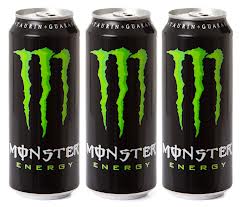 cast to continue in the five years through 2018-19, with industry revenue growing by 11.4 percent to reach $1.3 billion.
cast to continue in the five years through 2018-19, with industry revenue growing by 11.4 percent to reach $1.3 billion."Energy drinks carry a more youthful and fresh image than coffee and have been supported by strong advertising campaigns, which has appealed to young consumers," Daniel Ruthven, IBISWorld general manager said.
Over the past five years, the growth of Coca-Cola’s Mother and Asahi’s Monster has seen Australian made energy drinks overtake foreign imports in retail sales.
Over this period, energy drinks have grown within the functional beverage production industry, increasing their share of the category from just over 30 percent in 2008-09 to 39.6 percent in 2013-14.
"Australia has been late to the party when it comes to embracing energy drinks. As a result, this segment of the drinks industry has long been dominated by foreign products, until now, with very strong uptake of domestic products by young consumers," Ruthven said.
Sports drinks are forecast to decline by 0.2 percent over 2013-14, but revenue is expected to increase by 6.0 percent in the five years through 2018-19, to reach $458.0 million.
"Strong affiliation with some of our biggest sports events, teams, gyms and athletes means that sports drink revenue is anticipated to substantially increase in the coming years given Australia reputation as a nation of sports fanatics," Ruthven said.
Health drinks revenue is also expected to grow by 14.6 percent in 2013-14. IBISWorld anticipates growth to remain high in the five years through 2018-19, at a massive 58.2 percent annualised.
"Consumers are increasingly using health-related functional beverages as supplements to aid digestion, decrease hunger and manage weight. Health drinks, such as probiotic drinks and others with antioxidants or herbal ingredients, are expected to become increasingly popular with health-conscious, time-poor professionals," said Mr Ruthven.





